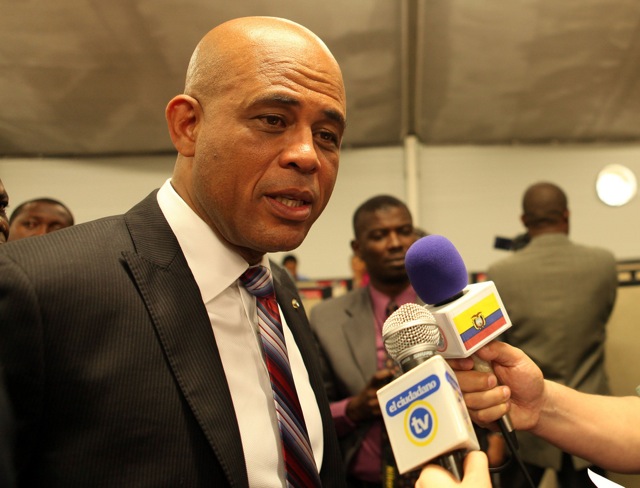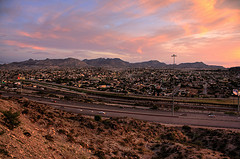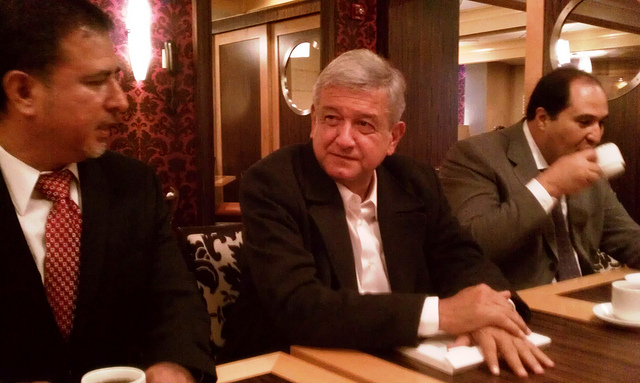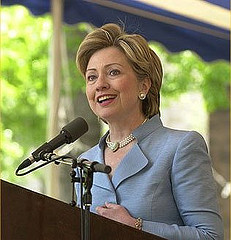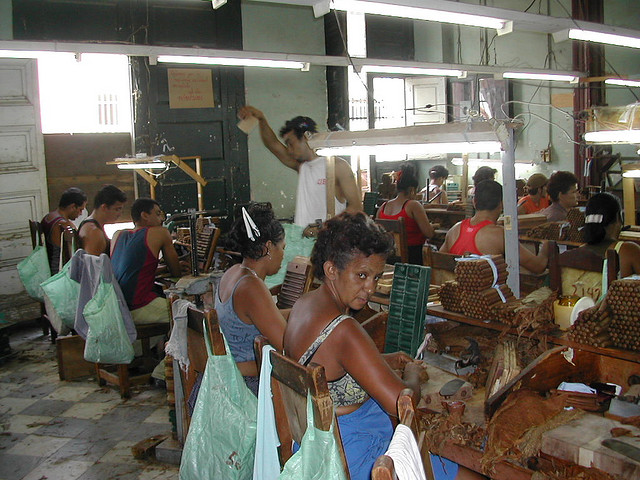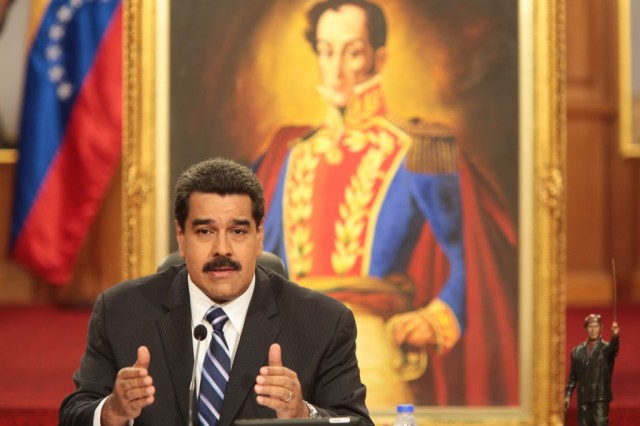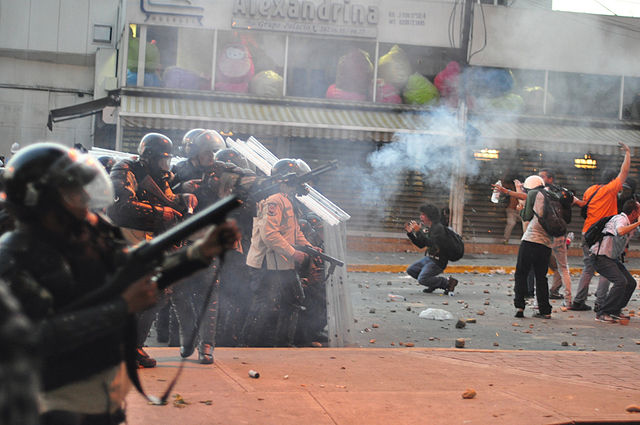
Andes, Latin America: Week in Review, Venezuela
Obama Signs Bill Authorizing Sanctions Against Venezuelan Officials
December 19, 2014 By Staff
The Latin America News Dispatch will take a short break from publishing our daily newsletter Today in Latin America to celebrate the holidays.
Felices Fiestas from the Latin America News Dispatch staff.
Top Story — U.S. President Barack Obama on Thursday signed a law placing sanctions on “persons responsible for violations of human rights in Venezuela,” the White House press secretary said in a statement.
The sanctions bill will freeze the U.S. assets of, and strip visas from, officials responsible for committing “significant acts of violence or serious human rights abuses” against participants in anti-government protests that have sporadically swept the country since this spring. The law would also target officials responsible for arresting or prosecuting those who either protested or spoke out against the government.
Ahead of the law’s signing, Venezuelan President Nicolás Maduro on Dec. 9 called the measures “insolent,” asking, “Who is the U.S. Senate to sanction the homeland of Bolívar?”
Maduro’s administration has targeted several opposition leaders in the wake of the protests. Politician Leopoldo López was arrested in February for his alleged role in inciting the violence that broke out after protests began earlier that month. Another major opposition figure, María Corina Machado, was indicted Dec. 3, accused of conspiring to kill Maduro.
The sanctions had been anticipated since November, when prospects for the law brightened following a Republican victory in the U.S. Senate. The signing of the bill, however, came in the aftermath of a major surprise: the announcement that the U.S. and Cuba, Venezuela’s closest ally, would seek to normalize relations.
Cuba’s decision to seek a rapprochement with the U.S. may have been influenced by a desire to pivot away from Venezuela, an ally that may look increasingly unreliable given its worsening economy and declining oil aid to partners, argued Reuters’ Andes bureau chief Andrew Cawthorne.
“It looks like Raul is cheating on Nicolas!” Venezuelan opposition leader Henrique Capriles told Reuters. “All of the Americas going in one direction, and Nicolas doesn’t know where he’s heading.”
Headlines from the Western Hemisphere
North America
- Over 400 Mexican troops and soldiers were deployed in Michoacán state after a shootout between two vigilante groups on Tuesday left 11 dead.
- Questions remain as to whether the shift in U.S.-Cuban relations will facilitate the extradition of several U.S. fugitives living on the island, including former Black Panther Assata Shakur, who escaped from prison and fled to Cuba after being convicted of killing a state police officer in 1973.
- Members of the U.S. Congress are threatening to withhold funds needed to establish the proposed U.S. embassy in Cuba, as more lawmakers voice their opinions on Obama’s Wednesday announcement.
- Rolando Sarraff Trujillo, one of the U.S. spies released from Cuban prison as part of Wednesday’s exchange, spent almost 20 years behind bars for giving information to the C.I.A that lead to the arrest of a number of Cuban spies in the U.S.
Caribbean
- U.S. companies like PepsiCo and John Deere have already begun to strategize how to expand their market to Cuba, despite evidence that the island is “not open for business just yet.“
- Famed Cuban blogger Yoani Sánchez expresses her home country’s collective sigh of relief, and renewed sense of optimism, over a new era of U.S.-Cuban relations.
- The formerly strong cultural and economic relationship between Cuba and Russia “could be expected to wither with time,” according to a piece in the Los Angeles Times, which examines Russia’s new role on the island given Obama’s Wednesday announcement.
Central America
- Hong Kong authorities seized 92 tons of rosewood coming from Honduras on Dec. 10, the largest seizure of protected wood in a decade, pointing to how Asian demand is fueling illegal timber trafficking from Central America.
- Honduras extradited Miguel Arnulfo Valle — the alleged leader of a large drug trafficking cartel responsible for mass violence, corruption and cocaine distribution — to the U.S., according to government officials.
- The rampant extortion of bus and taxi drivers in Honduras is the subject of a new piece from NPR, which examines how some drivers find themselves paying off multiple gangs simultaneously.
Andes
- Colombian President Juan Manuel Santos said the government will not join a unilateral truce announced by FARC rebels on Wednesday, rejecting the guerrilla group’s conditions until peace talks reach a resolution.
- The ambassador of Ecuador to the UK has written in The Guardian that the country has called an investigation into the death of Shuar indigenous leader José Tendetza, the fierce opponent of a major mining project who was killed just days before traveling to the UN climate summit to voice complaints.
- Reuters explores quality of life improvements that marginalized waste pickers and recyclers experienced after Peru passed the “Law of the Recycler” in 2009, which formalized the job and made it more respected.
Southern Cone
- Brazilian President Dilma Rousseff is readying some $36 billion in budget cuts and tax increases, officials said Thursday, the latest business-friendly move aimed at calming markets and spurring slow or negative economic growth.
- Following reports that Argentina is seeking to court foreign investors to develop its massive shale oil resources, U.S. oil company Exxon Mobil announced on Thursday its second major oil discovery in the large Vaca Muerta shale field.
- Chile will have suffered an inflation rate of 5 percent in 2014, a rate expected to fall significantly over the next year, the head of the country’s central bank said Thursday in an apparent effort to calm investors.
Image: Andresazp, CC BY-SA 3.0
Subscribe to Today in Latin America by Email
